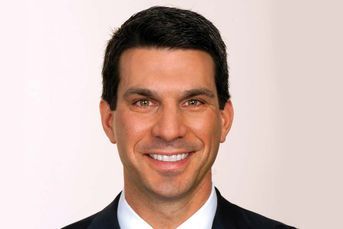As sales sag, T. Rowe Price caves, offers incentives
With mutual fund sales lagging behind those of competitors, longtime no-load stalwart T. Rowe Price Associates Inc. will…
With mutual fund sales lagging behind those of competitors, longtime no-load stalwart T. Rowe Price Associates Inc. will soon start paying brokers who sell several of its most popular funds.
The Baltimore fund company expects to make the new adviser share classes available for 10 of its funds by March 31, pending Securities and Exchange Commission approval. Company executives hope the broker-only shares will spur sales of its funds through wrap accounts and retirement plans like 401(k)s.
“T. Rowe Price is doing what it thinks it has to do to keep business coming in,” says Catherine Hickey, an analyst with Chicago-based fund tracker Morningstar Inc.
“A lot of their funds perform well and are well-managed, but in this tech-crazed market, they are also very much focused on growth at a reasonable price and not as much on go-go growth,” she says. “That’s led to good returns, but not the great returns that some other funds have posted lately.”
With $179.9 billion under management, T. Rowe is the seventh-largest mutual fund company in the country. But with its small-cap and conservative investing bent, T. Rowe hasn’t seen the same cash inflow that its technology and large-growth rivals have.
According to Boston-based Financial Research Corp., T. Rowe pulled in $1.1 billion in net sales in 1999, compared with Vanguard Group’s $45.9 billion and Janus’ $35.7 billion. That kind of disparity has forced many money management shops to explore new markets for their funds, including offering adviser class shares.
“T. Rowe is one of the last holdouts,” says Ms. Hickey. “It’s something that everybody else is doing and the business is getting more competitive all the time. You need distribution through a variety of channels to stay competitive.”
Brokers like Merrill Lynch & Co. Inc. now offer wrap accounts, where advisers manage assets for an annual fee rather than charge commissions for each transaction. These wrap accounts have created new opportunities for mutual fund companies seeking to broaden their distribution.
Yet T. Rowe Price vice president John Cammack, who manages sales to markets other than the direct retail market, points out that the company already manages $37 billion from third-party sales, including 401(k) plans and wrap programs.
“It’s not as if we’re just entering intermediary channels. We’re already established there,” Mr. Cammack says. “But we’d like to continue to generate products and services that complement the business of intermediaries.”
Market driven? who? us?
While he acknowledges that T. Rowe has largely been excluded from investor exuberance over the last several years, he insists the new share classes aren’t in reaction to low inflows.
“When small-cap and value return to favor, we’ll be well-positioned,” he says. “When we come back into style, the money will follow.”
The adviser shares come with a 0.25% 12(b)1 fee, which will serve as an incentive for brokers and financial advisers to sell the T. Rowe funds. The typical 12(b)1 fee ranges from 0.25% to 1% across the industry and helps offset brokers’ marketing costs.
T. Rowe is known for having some of the lowest-cost funds in the industry. Even with the 12(b)1 fee, the cost will be about 1.1% of assets, below the industry average of about 1.4%. Investors purchasing directly through T. Rowe will not pay the fee.
“This notches the cost up a little, but it’s going from cheap to still pretty reasonable,” Ms. Hickey says.
The funds with the new class will be the Equity Income Fund, Blue Chip Growth, High Yield, International Stock, International Bond, Mid-Cap Growth, Science and Technology, Small-Cap Stock, Value and Small-Cap Value.
Mr. Cammack says that depending on market demand, T. Rowe might offer adviser shares in other funds in the future.
But, Ms. Hickey says, it’s not likely to happen any time soon.
“These [10] funds are the most attractive to 401(k) investors,” says Ms. Hickey. “I don’t know how many investors would be looking at some of their smaller, more obscure funds.”
Learn more about reprints and licensing for this article.





